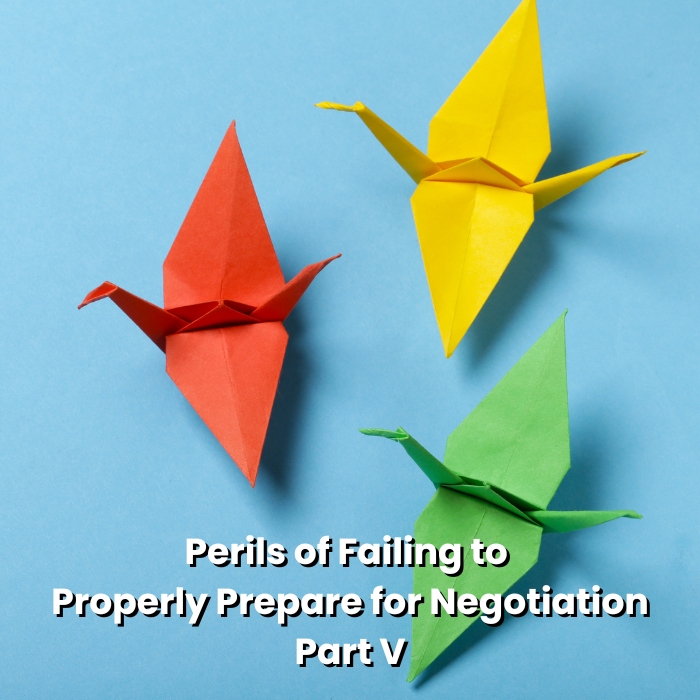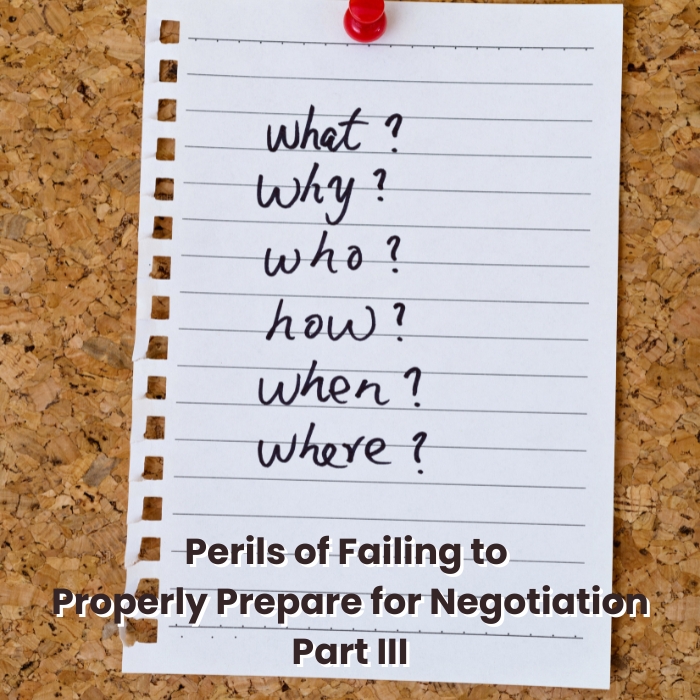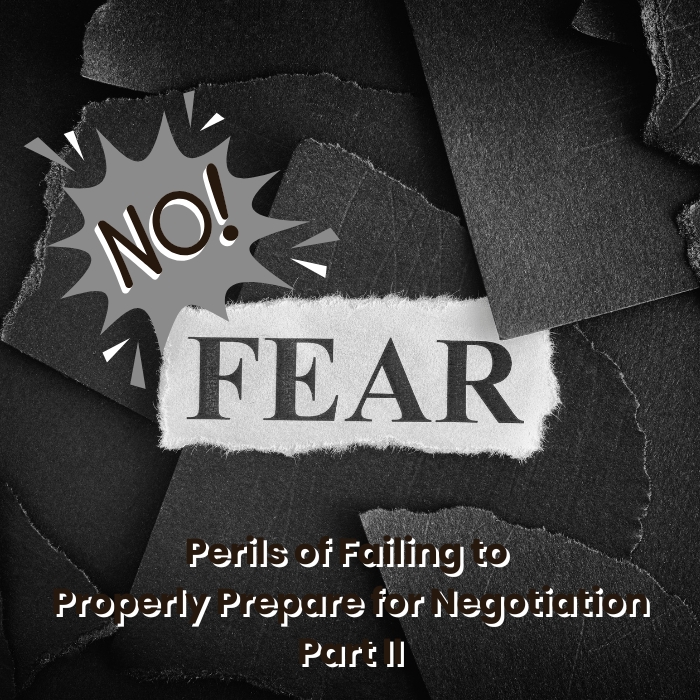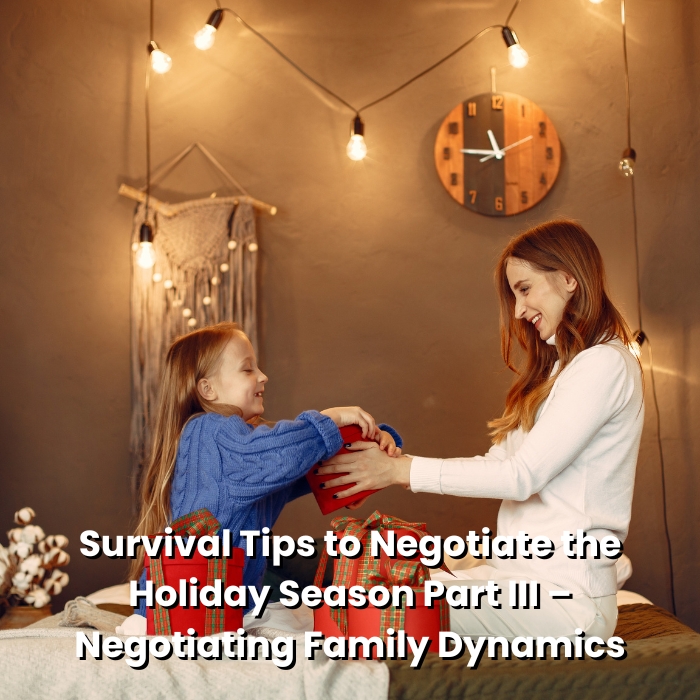
How to Negotiate with Friends
Who can forget the hit ’90s TV show Friends? The sitcom ran for 10 seasons and followed the trials and tribulations of Monica, Ross, Chandler, Joey, Phoebe and Rachel. We laughed and cried along with them as this group of twentysomethings navigated their way through life in New York City.
One particularly amusing plotline was when Chandler began dating Rachel’s boss Joanna. Rachel was not thrilled and demanded they stop seeing each other. Chandler had other ideas and sneakily kept the relationship going. This culminated in him being handcuffed to Joanna’s desk, and Rachel discovering him there when she used her secret key to gain access to her boss’s office.
Consequently, there was a standoff. Rachel and Chandler both had something to lose — and something to hide. Who was going to win?
A two-minute negotiating scene ensued, with Rachel coming up with a variety of options for Chandler to stay handcuffed so that her boss didn’t discover she had access to the inner sanctum. Meanwhile, Chandler just wanted to put his pants on and leave!
What gets him over the line?
Rachel realizes she has the power to make or break Chandler’s reputation with the fairer sex.
She tells him: “I can be very generous or very stingy.”
Chandler responds: “Go on.”
Rachel says, smiling: “I can make you a legend.”
Not surprisingly, Chandler decides that having women think he’s got a lot to offer is worth being handcuffed to a desk sans pants for a few more hours.
In the Friends example, Rachel and Chandler were able to reach an agreement from which they both mutually benefited. And, let’s face it, negotiating with people you have relationships with is inevitable. However, there is an old Russian saying that translates to, “The best way to lose a friend is by bargaining with them.”
But should you try to stay away from opportunities to negotiate with friends and family? Nowadays, it’s even tougher to negotiate outside of your relationship dynamic, whether personally or professionally. In addition to the inevitable negotiations that regularly take place in any relationship, your business and social communities overlap to a higher degree than ever before.
From a professional standpoint, your business colleagues are friends on Facebook, and you follow each other on Instagram. This leads to you spending time together in real life. Having a good working relationship with a friendship basis is integral. If you are a business owner or entrepreneur, cultivating connections, a support system, and bringing in revenue can depend on the depth of your friendships with business colleagues. You don’t want to cut them off from that area of your life.
After all, if you didn’t negotiate with your friends, there would be very few people to actually negotiate with!
As women, we tend to make friends with our business colleagues, clients and contacts. But once your client becomes your friend, you become concerned about negotiating a good deal for yourself, because your perception is it could be seen as taking advantage. As women, we are also expected to be nurturing and caring. You are subconsciously afraid you will be creating an adverse outcome for the other party.
All this stems from your upbringing of being expected to always accept what you are given, be accommodating, and be seen and not heard. Studies show that from kindergarten, boys are encouraged to beat their chest and ask for what they want. By bragging and demanding, they can increase their social status. Meanwhile, social conditioning means it’s not the done thing for a woman to push hard. Young girls are led to believe they will be ostracized and excluded if they ask for what they want or show confidence in themselves. Instead, they are self-effacing. This follows through to adulthood. You are conditioned to expect exclusion if you step into your power.
It’s obviously more challenging to negotiate with someone you have strong emotional ties to. Why? Because they know you, they know how to push your buttons, and also what makes you tick. Your friends are also empowered to do and say things that people who don’t know you cannot do and say. They can step over the proverbial line as they have emotional ammunition. Someone you don’t have a relationship with doesn’t have that in their arsenal. This can lead to you being not as stringent in your negotiation process.
What are the unique issues that can arise when you have to negotiate with friends or those close to you? And what can you do to make the most of the pros and reduce the cons of the situation? What do you do if the negotiation goes wrong and the friendship goes south, or if the negotiation succeeds and one of you is left feeling ripped off? How do you avoid either you or your friend feeling like you have been taken advantage of?
What You Need to Remember When Negotiating With Friends
Know Your Belief
When you enter into a negotiation with a friend, be absolutely unshakeable in the belief that you can negotiate. You may be discussing a passion project or collaboration, but you don’t have to sacrifice what is true to you. When it comes to your business objectives and needs, if you are both playing fair in the arrangement, then you will both be on a level playing field.
One way to overcome any limiting belief of your success is to reframe your negotiation as a discussion, which can help you both engage more freely.
You also need to make sure you know your “why.” Think about how getting a win in this negotiation can change your life. This takes away the sensitivity of the topic itself (e.g., money) and instead channels into your deeper drives. What if this win means you can finally take that dream vacation? Or buy your forever home? Or give your child the horse-riding lessons they’ve always wanted? That gives you so much more impetus to be successful in your negotiation.
Always remember, both men and women have unconscious gender biases. They think you are less effective as a negotiator because you are a woman. And that doesn’t change even if you are friends. Understanding this unconscious bias is one of your secret weapons.
Respect Boundaries
When negotiating with friends, you need to make sure you are both clear about the negotiation purpose upfront. Lay out a framework of what is in bounds — that is, what you can discuss — and what is out of bounds. (I go into greater detail about how to prepare for your negotiation process in my programs.)
Of course, you will both know about each other’s personal life. While this can be potentially useful in making gains during your negotiations, it doesn’t mean you should use it. Manipulating someone on a personal level to achieve a better result for your deal is rude and not good business.
Once you have agreed on your boundaries, you must both hold fast to ensure you do not step over the line. If you and your counterpart set the ground rules, you can offset straying into territory that has nothing to do with the subject at hand. For example, don’t bring things that happened in the past into your current negotiation.
Don’t allow your friend to use red herrings as a ploy to gain an advantage over you. This is when your negotiation adversary is placing huge value on a particular aspect of the deal, but it’s actually a ruse to distract you from what you are discussing at that moment in the negotiation.
In the throes of negotiation, you can utilize body language as a signal. If your counterpart is closing off by crossing their arms, it may be an indication they aren’t happy with the topic you are discussing. It can also serve to tell you if they are trying to be manipulative.
You should also state how you want your relationship to continue after the discussion. You can use their body language as an indication they are happy with the outcome. If their words and body language match, you know your negotiation has been successful.
Be Mindful of Your True Personality and Negotiation Style
You may be a very different person in your personal and professional life. For many people, this enables avoidance of conflict. However, whether you are negotiating with a friend in a business or relational capacity, you need to be mindful of how you shift between the two. Your counterpart will be confused and aggrieved if you switch from your usual affable, warm self, to a cold, corporate crocodile. Negotiating is not about the bark and the bite. It’s not about getting in someone’s face.
An option is to use a more personal approach in the beginning in order to acclimatize to the discussion. Use your assertiveness, rapport building, empathy, flexibility, intuition and trustworthiness. This A.R.E.F.I.T model is at the core of my teachings. And it will enable you to negotiate with intention. I go into more depth on what these are and how they can work for you in my Art of Feminine Negotiation program.
From the A.R.E.F.I.T model, the ability to build rapport and show empathy can be great assets when negotiating with a friend. Why? With a basis of rapport already established in your relationship, you wouldn’t have become friends in the first place! Hence, build on it further to achieve success in your negotiation.
Additionally, you have the ability to show empathy, because you know your friend. You can direct them toward the outcome you want while making them think it’s what they too want. Winston Churchill once said, “Diplomacy is the art of telling people to go to hell in such a way that they ask for directions.” As a woman, you are likely good at that already!
We also all have a natural negotiation style. This is entwined with what motivates you as a person. Here is a brief outline of what these motivation styles are:
Competing: The “I win, you lose” model — you do whatever it takes to reach your desired agreement.
Avoiding: The “I lose, you lose” model — if you use this, you dislike conflict and will talk in vague terms. You can often come off as passive-aggressive without realizing it.
Collaborating: The “I win, you win” model — you focus on making sure all parties have their needs met.
Accommodating: The “I lose, you win” model — this is not in your best interests when it comes to negotiating. You focus on maintaining the relationship.
Compromising: The “I win/lose some, you win/lose some” model — this is often confused with collaborating. You will often relinquish some terms in favor of gaining others.
When dealing with a friend, you should be mindful of how the way you negotiate is interpreted.
Also, you may find that as a woman, you will slip into mediation mode, in which we as caregivers automatically become mediators (how many of you have had to keep the peace between your kids?). This is another form of negotiation in many ways. Make sure you flip out of that mindset!
Share Your Control
Entering a negotiation, the one thing we usually do is attempt to take control. But when it involves a friend, you need to be more generous. It’s no longer just about swaying a point of view. You need to approach the situation with an understanding of their perspective. Why have they decided to adopt this position? Look at what they are saying from a neutral point of view.
However, this doesn’t mean you have to lose your assertiveness. Why is it that as women, we can bring our Momma bear to the fore when we are looking out for someone else, but not when it comes to looking out for ourselves? You no doubt have feelings of inadequacy and impostor syndrome when it comes to your own life, and when it’s a friend you are facing off against, it can be that much harder to be assertive for fear of causing hurt. Look inward and imagine you are negotiating for someone else. Or look at the bear cub inside you, which may still be feeling those hurts and hang-ups from when you were little, and bring that Momma bear to help YOU out!
Reserve Your Judgment
Be mindful of the outside influence other people can exert on the situation. Many conflicts arise with friends on a personal or professional level because there has been a misperception of what was said or done. Other people throwing their opinions into the mix often exacerbates this. If the negotiation is going sideways, stop any outside interference from those you have spoken to about the situation, or you could run the risk of deepening a divide between the pair of you.
If your negotiation hits a sticking point, you can use deflection to save the situation and the friendship. A third party can diffuse the tension. Invite an independent colleague to assist with an awkward conversation. Utilize “your team” as a buffer. For instance, you can say, “Your lawyer reviewed,” or, “Your wonderful expert negotiation coach suggested,” which is, of course, me! You don’t have to be sneaky about this. There may be areas in which you both feel the need to have a third party involved. Honesty and transparency are essential. And this way, you can explain what you want from the deal, but it’s not about you. And the third party cited will bear the brunt of any blame.
The Law of Reciprocity
When someone does something nice for you or to you, in return you should do the same in kind. The law of reciprocity is always at work. How does this play out with you and your friend? If you analyze this dynamic between you, you can handle how your negotiation might play out. For example, if you feel you are always giving and they’re receiving, you have a pretty good steer on how things are going to go between you.
Don’t Let Time Pass
We tend to hurt the ones we love. Be careful to not allow a negotiation to get out of hand when negotiating with a friend. If there are any misconceptions or a sense of wrongdoing resulting from your negotiation, address it as soon as possible. You had a good friendship before; don’t let go of that if your discussion goes awry. Be selfless in the process. It’s no good to win a battle at the expense of your friendship. Is there a qualifier here? It depends on how good your friend is in relation to the value of what you are negotiating!
If you liked reading this blog post, then check out my blog post on how to negotiate your personal confidence boost.
- Perils of Failing to Properly Prepare for Negotiation Part V - December 30, 2024
- Perils of Failing to Properly Prepare for Negotiation Part IV - December 27, 2024
- Perils of Failing to Properly Prepare for Negotiation Part III - December 26, 2024






